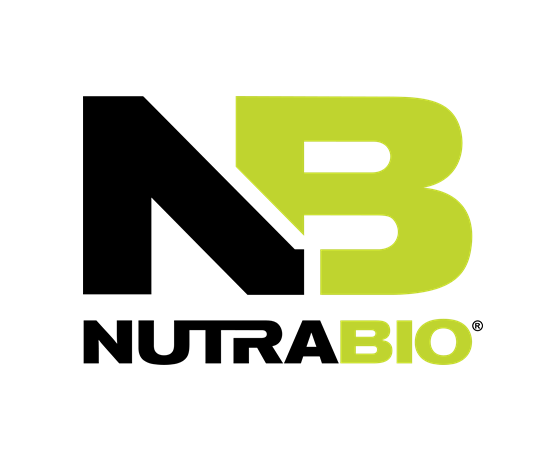 Floor coating systems are used in warehouses, commercial buildings, and an array of industrial facilities to protect concrete floors and adhere to safety standards for staff and machinery. The right floors can increase safety, reduce maintenance, protect sensitive equipment, and provide the long-term durability needed to maximize production.
Floor coating systems are used in warehouses, commercial buildings, and an array of industrial facilities to protect concrete floors and adhere to safety standards for staff and machinery. The right floors can increase safety, reduce maintenance, protect sensitive equipment, and provide the long-term durability needed to maximize production.
But how do you select the ideal flooring system for your specific facility?
This guide provides guidance on:
- Flooring requirements for commercial and industrial facilities
- Resin floor coating options
- Flooring installation best practices
- Evaluating your options
To learn more, download Surface Technology’s Tips on Selecting the Right Flooring System now.
Industrial buildings require flooring that is durable and can stand up to impact and activity. That means the best industrial solution is a floor coating that is specifically designed for your use. While there are many options for industrial flooring solutions, some will perform better than others. Here are factors to consider ensuring that you pick the right solution for your facility’s floor.
Industrial Epoxy as a Premium Solution
Whether you are processing food or chemicals, manufacturing electronics or pharmaceuticals, or need a floor coating for an aircraft hangar, there is a wide range of specialty epoxy coatings for your needs. Most industrial resin flooring products are 100% solids and are a multi-component resin system with a short pot life. They require a skilled hand during the floor preparation, mixing, and application process. The result is a seamless floor that performs beautifully and is hygienic, durable, and easy to clean.
Floor coating systems are used in an array of industrial and commercial facilities, including warehouses, aviation facilities, and more. They offer a safe working environment for staff and are non-toxic and easy to clean. Additionally, high-gloss flooring options can help save on electricity costs by reflecting light and reducing the need for indoor lighting.
Your professional floor coating installer can design your epoxy floor to be skid resistant, hygienic, electrostatic dissipative and conductive, and much more, depending upon your requirements.
Performance Characteristics of Industrial Floor Coatings
- Abrasion-resistant
- Impact-resistant
- Chip/flake resistant
- Corrosion-resistant
- Anti-slip (safety)
- Antibacterial
- Antimicrobial
- Antistatic
- Hygienic
- Long-lasting
Types of Floor Coating Systems
The materials used for industrial facility flooring vary depending on specific needs but can largely be divided into the following categories:
Epoxy –This type of floor coating is non-porous and is used in high impact facilities where optimum durability is the top priority. In the application process, the epoxy is left to cure for a minimum of 24 hours. When cured, it produces polymer structures that give the substance great strength and durability. Highly resistant to chemical spills and abrasion, these systems are often used with decorative chips or colored sands. We can achieve an infinite array of color schemes or patterns with this material.
Epoxy & Urethane – Epoxy and urethane floors have an added top layer of urethane that acts as a seal and provides a seamless surface that is moisture and heat resistant. Epoxy and urethane floor systems are commonly found in the food and beverage industry.
Urethane Cement – Urethane cement is a combination of a polymer binder (urethane) and fillers (cement and aggregate). Urethane Cement is also referred to as polymer concrete. It can tolerate high moisture, which makes it suitable to be installed directly onto concrete. It also provides wear-resistant, durable, and seamless floor finishes that can be cleaned and sanitized. Urethane cement flooring systems are tailored to the demanding service conditions often found in food and beverage industrial, pharmaceutical, and healthcare environments.
Acrylic (MMA) – MMA is a dual system polymer that is not as hard or durable as epoxy but is a formidable option for commercial flooring. MMA has a low glare satin finish and is resistant to weak acids, alkalis, solvents, and scratches. It is also highly flammable and odorous, so special ventilation and installation procedures must be implemented.
Polyurea – Polyurea is an organic polymer that is the result of a reaction from mixing an isocyanate and resin blend component. Polyurea has a rubber-like feel, making it not as hard as epoxy but still extremely durable. Polyurea flooring has a high-gloss finish, is highly stain and chemical resistant, and has a high heat tolerance.
Polyaspartic – Polyaspartic coatings are a relatively new technology for concrete floor coatings. Initially developed in the 1990s to protect steel from corrosion, they are now being used to protect industrial facilities’ concrete floors. Originally developed with low VOC in mind, all polyaspartic coating systems are low or zero VOC. In contrast to epoxies and polyurethanes, polyaspartic coatings provide faster drying time, and high film builds allowing for a much faster return to service. They also resist stains and slightly higher temperatures than other types of coatings.
What is the Difference Between Floor Paint and Floor Coatings?
Epoxy paint is essentially latex paint with a small amount of added epoxy for increased durability. Home DIYers and commercial painters have begun applying what is colloquially known as epoxy paint, but there is a vast difference between epoxy paint and a true industrial-strength epoxy coating.
The main difference is in the quality and durability of the materials as well as the skill required to successfully install the product. Common household epoxy paint is good only for light-duty applications and was never intended for industrial use. It is manufactured with a long pot life for easier application. Products like this may perform beautifully for light-traffic, residential use but are not strong or durable enough for industrial use.
Epoxy floor coating is a much more technical process that requires the expertise of a flooring professional to properly install. The exact materials used vary depending on the type of flooring system required, but every floor system installation requires careful planning to ensure the essential performance characteristics are achieved with the finished floor. Floor coating systems require the proper preparation of the underlying concrete and subsequent layers to ensure the products bond correctly and the coating is successful.
Finished Floor Performance Is More Important Than the Brand
There are many different types of flooring solutions out there, and each one has its benefits and drawbacks. A good flooring contractor will be able to evaluate your situation and provide a recommendation for the best product that will create a customized flooring solution.
While some industry leaders create excellent products, it is important to know that there are many premium floor coating manufacturers with top quality products. Independent flooring contractors may provide an advantage since they are not locked into selling just one manufacturer’s solution. Talk to an industry expert about what custom solutions are right for your application.
Finding the Right Flooring System Provider
By talking with different flooring specialists, you will be better able to understand the differences between their industry experience, installation approach, reputation for client satisfaction, and their ability to design and install custom industrial flooring and coating solutions.
The firm must carefully evaluate your existing facility and take the time to discuss your requirements in detail. Their personnel must assess the full range of products available and provide the best recommendations for your flooring needs. After their experts have a complete understanding of your facility and requirements, they should design a custom solution for your firm that takes advantage of the best that the flooring system industry has to offer.
Floor Installation
Installation is the most critical aspect of your epoxy or polyurethane flooring solution. If something goes wrong during the installation—if the floor isn’t properly prepped, if mixes aren’t correct, or if the coatings are not properly allowed to cure between coats—your floor and its longevity will be compromised. That’s why it’s important to ensure that the people you are working with are highly experienced and respected in the industrial and commercial flooring industry.
Painters vs. Industrial Epoxy Flooring Professionals
One of the biggest challenges you may face is to determine if your prospective flooring vendor is a dedicated polymer flooring professional, rather than a conventional commercial painter. There is a difference – even if the commercial painting contractor you are speaking with is a well-respected and experienced firm.
About The Author

Founder and President, Michael E. Greenblatt is an independent, nationally recognized industrial flooring and coatings expert with more than 35 years of industry experience.
As a former executive for leading polymer flooring manufacturers, Michael has been a pioneer of highly effective new applications and installation techniques in building custom industrial flooring, coating, and lining solutions. The Surface Technology, Inc. project engineering team, under Michael’s leadership, collaborates closely with clients to design the ideal solution for each custom set of application requirements.

Surface Technology, Inc. Has Over 35 Years of Flooring Experience
Surface Technology is a licensed, deadline-focused, national epoxy resin flooring contractor, providing industrial flooring, coating, and lining systems. High-profile companies rely on Surface Technology to protect, restore, and enhance their facilities’ most critical workspaces, including:






3 Reasons to Hire Surface Technology For Your Industrial Flooring Needs

Innovative and Complex Resinous Installations
Our experts know the right products and the proper installation techniques for any flooring challenge.
We bring over 35 years of hard work and problem solving into finding a solution for your flooring needs. You can rely on us for superior epoxy flooring, coating, and lining.

We’re Ready When You Are, Where You Are
Whether you want a new epoxy floor installed next year or next week, we’re ready to take on your project anywhere within the United States.
We are dedicated to delivering high-quality flooring, coating, and lining installations to large facilities 24/7/365.

Consistent High-Quality and Efficiency
We have successfully installed over 50 million sq. ft of high-performance flooring since 1988. We get the job done right and on-time, the first time.
All our work is backed by an industry-leading warranty, covering materials and labor, complete with yearly inspections.

